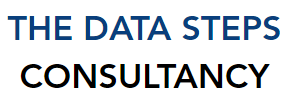The Data Steps' R Programming for Data Science training course will help you become a master in data manipulation with R programming, data visualization, and advanced analytics topics like regressions and data mining using RStudio.

The Data Steps' R Programming for Data Science training course will help you become a master in data manipulation with R programming, data visualization, and advanced analytics topics like regressions and data mining using RStudio. During this course, you will work on real-life projects and assignments to master data science.
Who Is This Course For?
Analytics professionals who want to fasten their growth path
IT and Software professionals who are looking to get into the field of Analytics.
Students and graduates who want to start their career with Analytics, or
Anyone who wants to get started with Analytics
?
?
Pre-requisites:
No prior knowledge of programming is assumed.
No prior knowledge of any subject is ass
Background, Getting Started, and Nuts & Bolts
This week covers the basics to get you started up with R. The Background Materials lesson contains information about course mechanics and some videos on installing R. The Week 1 videos cover the history of R and S, go over the basic data types in R, and describe the functions for reading and writing data. I recommend that you watch the videos in the listed order, but watching the videos out of order isn't going to ruin the story.
Programming with R
Welcome to Week 2 of R Programming. This week, we take the gloves off, and the lectures cover key topics like control structures and functions. We also introduce the first programming assignment for the course, which is due at the end of the week.
Loop Functions and Debugging
We have now entered the third week of R Programming, which also marks the halfway point. The lectures this week cover loop functions and the debugging tools in R. These aspects of R make R useful for both interactive work and writing longer code, and so they are commonly used in practice.
Simulation & Profiling
This week covers how to simulate data in R, which serves as the basis for doing simulation studies. We also cover the profiler in R which lets you collect detailed information on how your R functions are running and identify bottlenecks that can be addressed.
The profiler is a key tool in helping you optimize your programs. Finally, we cover the str function, which I personally believe is the most useful function in R.
Philosophy We Believe In.
Learning is organic; it grows. Just like a child. You can’t accelerate the years. Accept it.
Principal of Necessary Chaos: Chaos is part of learning. Get comfortable with it. Your objective over your lifetime is to minimize the chaos.
Mathematics is the Only Language; you cannot escape mathematics. Not liking mathematics is akin to not liking oxygen.
To really master any subject, you must know the philosophy behind it.
The inflection point is the “Point of Sustainable Practice." This is the hardest part. Once you reach here, You can drive wherever you want. Till such time, the struggle is inevitable.
Be hands-on and practice daily. It's common sense, isn’t it?
© 2025 coursetakers.com All Rights Reserved. Terms and Conditions of use | Privacy Policy